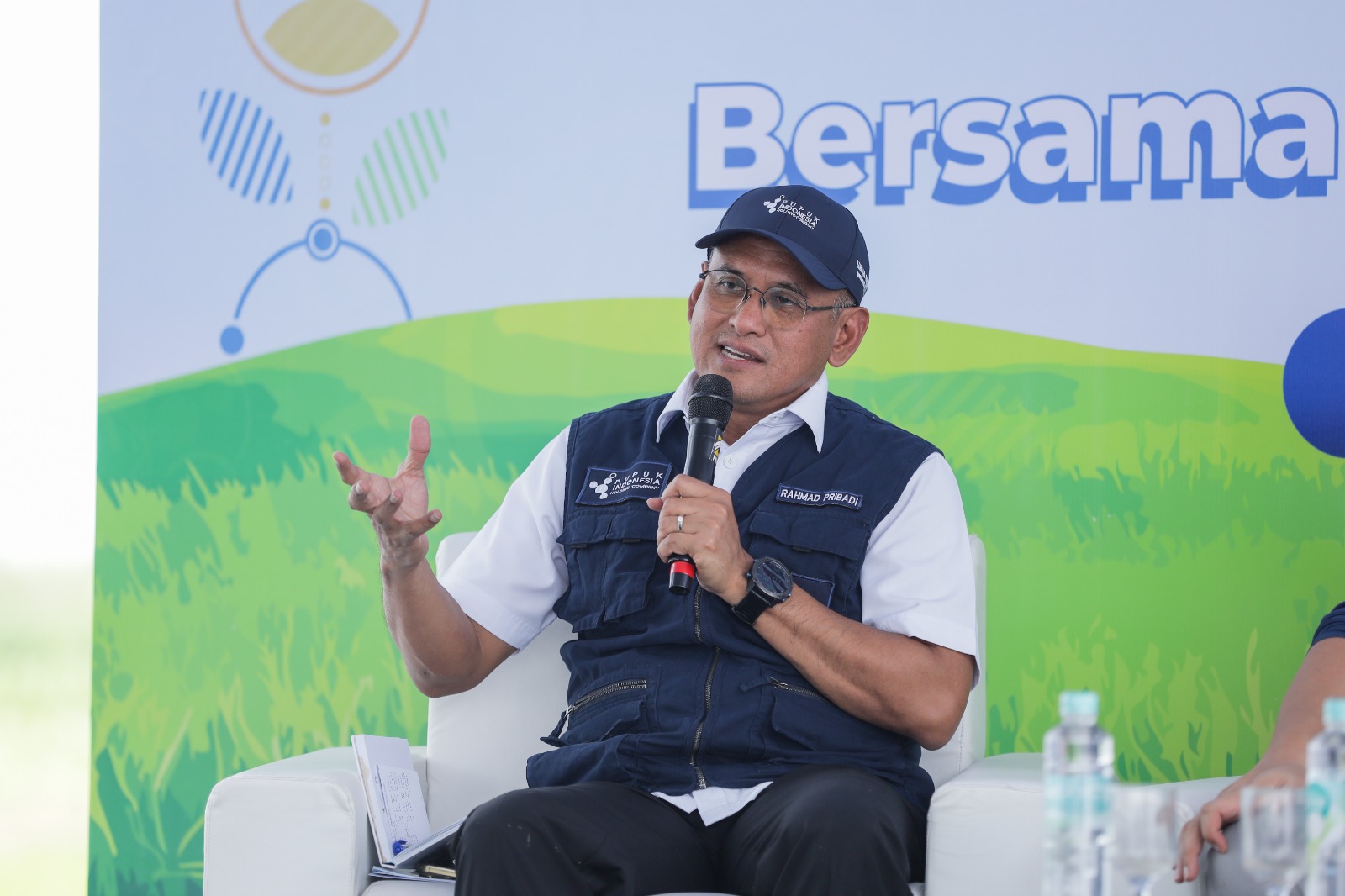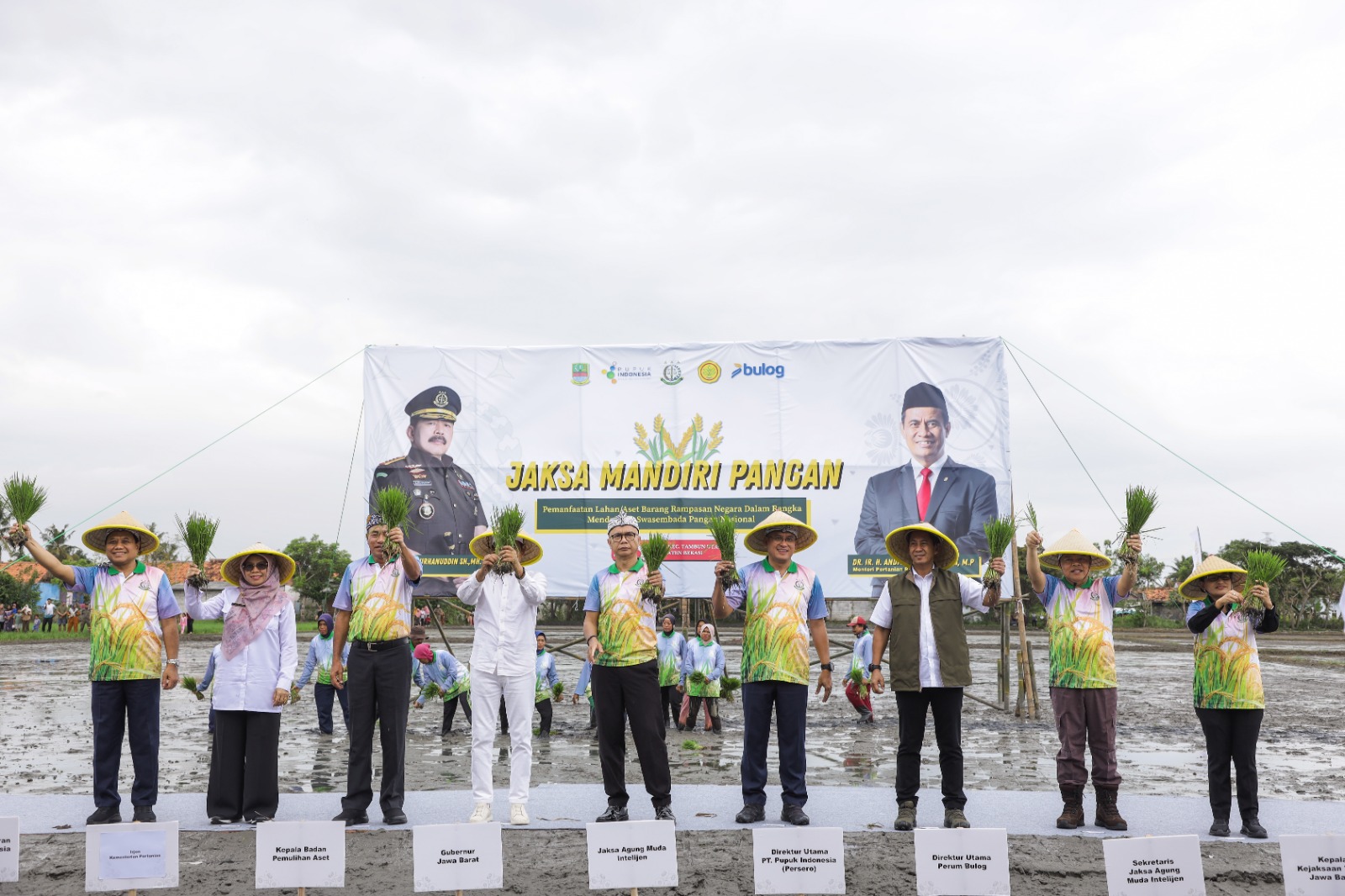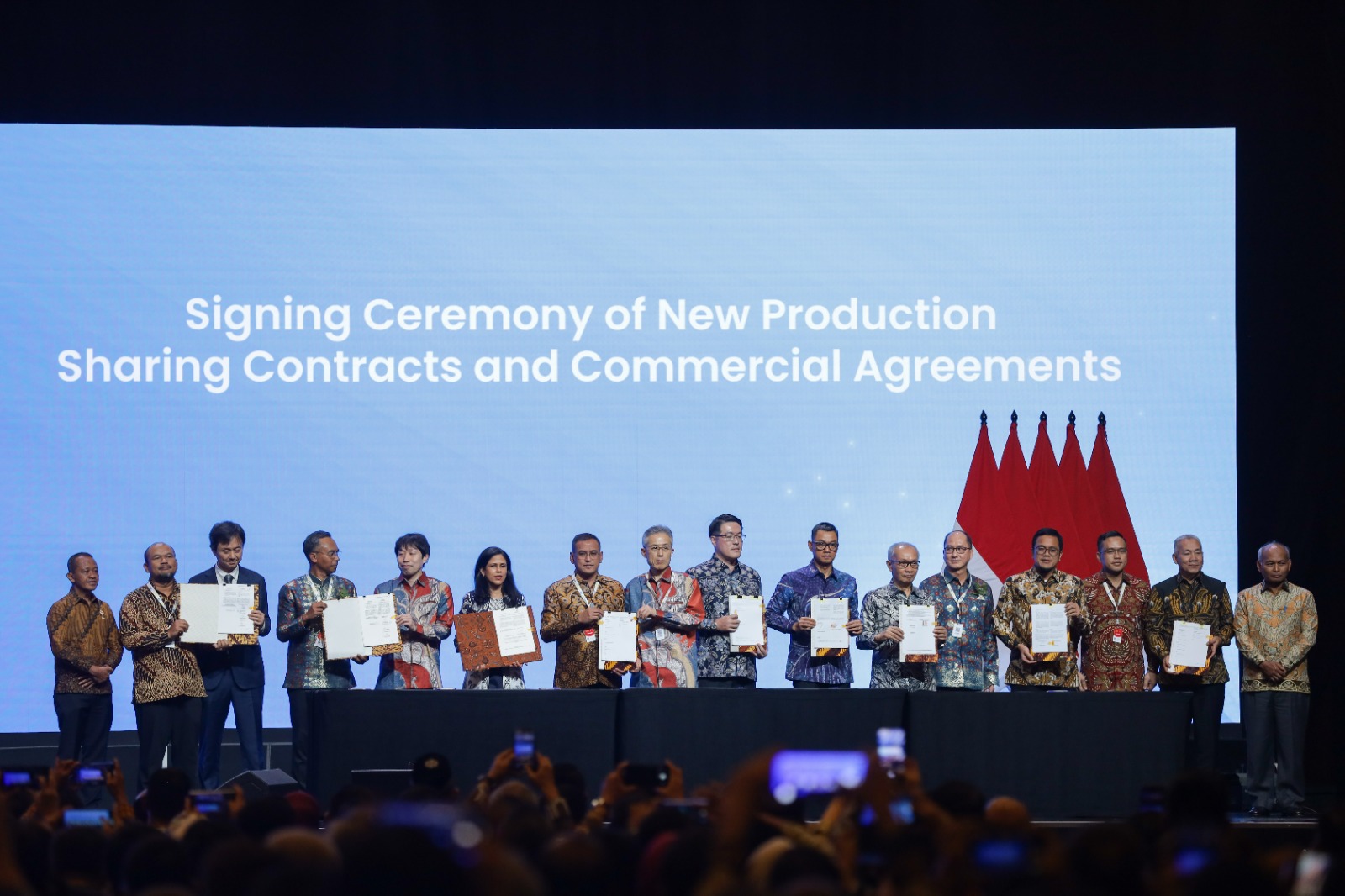Dari Komitmen ke Aksi, Ini Strategi Pupuk Indonesia Sambut Musim Tanam Awal 2024

Jakarta, 13 Desember 2023 – Menyambut musim tanam awal 2024, PT Pupuk Indonesia (Persero) memastikan jumlah pupuk cukup bagi para petani, baik untuk pupuk subsidi dan non-subsidi. Hingga 6 Desember 2023, sebanyak lebih dari 5,802 juta ton pupuk telah disalurkan kepada petani terdaftar di 38 provinsi Indonesia. Dalam memenuhi kebutuhan petani, Pupuk Indonesia juga menyediakan stok sebesar 1,2 juta ton yang tersedia di gudang lini III dan siap ditebus petani terdaftar. Keseluruhan stok pupuk tersebut terdiri dari 839,693 ribu ton stok pupuk urea bersubsidi dan 424,692 ton NPK. Bagi petani yang tidak memiliki alokasi, Pupuk Indonesia juga menyediakan stok pupuk non subsidi sebesar 500,934 ton pupuk urea non-subsidi dan 92,398 ton NPK non-subsidi.
Wijaya Laksana, Sekretaris Perusahaan Pupuk Indonesia, mengungkapkan, “Komitmen kami adalah pupuk tersedia tepat waktu di gudang-gudang lini terdepan di seluruh Indonesia. Bukan hanya jumlah yang cukup, kami memastikan jenis dan mutunya sesuai dengan kebutuhan pertanian di daerah tersebut. Selain pupuk subsidi, pupuk non-subsidi pun telah kami siapkan.”
“Untuk mempermudah proses penebusan pupuk subsidi, kami terus melakukan inovasi termasuk dengan digitalisasi untuk mempercepat dan meringkas proses pelayanan petani. Salah satunya lewat implementasi aplikasi i-Pubers (Integrasi Pupuk Bersubsidi) yang saat ini telah tersedia di 6 provinsi. Aplikasi ini memudahkan petani terdaftar untuk melakukan penebusan pupuk subsidi hanya dengan membawa KTP. Melalui integrasi dengan data e-alokasi Kementan dan fitur geo-tagging, i-Pubers menjadi solusi terdepan untuk memastikan ketepatan distribusi pupuk. Inovasi digital ini tidak hanya efisien, tetapi juga membantu kita mengarahkan pupuk subsidi tepat pada sasaran, mendorong pertumbuhan sektor pertanian dengan presisi,” tambah Wijaya.
Ketepatan distribusi stok pupuk menjadi fokus Pupuk Indonesia beserta anak perusahaan di industri pupuk dalam mendukung keberlanjutan pertanian di seluruh Indonesia. Melalui investasi dalam teknologi dan sistem manajemen logistik yang unggul, perusahaan memastikan bahwa pupuk tersedia tepat waktu dan sesuai dengan kebutuhan masing-masing daerah. Langkah ini dilakukan untuk meminimalkan risiko kelangkaan pupuk dan memastikan pertanian dapat beroperasi dengan efisien.
Digitalisasi manajemen logistik dilakukan dengan penerapan Distribution Planning & Control System (DPCS), terutama untuk pupuk subsidi, dan Retail Management System (RMS). Melalui DPCS, Pupuk Indonesia dapat melakukan pengawasan distribusi secara real-time dari lini 1 hingga lini 4, dilengkapi dengan early warning system untuk memberikan peringatan dini jika stok menipis pada tingkat daerah. Sedangkan, RMS diterapkan pada tingkat kios atau pengecer untuk mengawasi stok dan transaksi pupuk, serta mengidentifikasi pihak yang melakukan penebusan pupuk di tingkat kios.
Selain itu, langkah pengamanan distribusi pupuk subsidi diperkuat Pupuk Indonesia dengan sinergi dan koordinasi dengan banyak stakeholder seperti distributor, Kesatuan Pelaksanaan Pengamanan Pelabuhan (KP3), kepolisian hingga kejaksaan dan pemerintah daerah setempat. Secara berkala, Pupuk Indonesia juga melakukan proses audit sebagai upaya memastikan tidak ada indikasi penyimpangan dalam penyaluran pupuk bersubsidi bagi petani.
Selain memastikan keamanan stok pupuk, Pupuk Indonesia juga berkomitmen untuk terus berinovasi dalam meningkatkan efisiensi dan keberlanjutan sektor pertanian. Salah satunya adalah program pengembangan pertanian berkelanjutan, yaitu MAKMUR (Mari Kita Majukan Usaha Rakyat). Program yang telah diinisiasi oleh Pupuk Indonesia bersama Kementerian BUMN sejak 2021 ini bertujuan mengedukasi dan memberdayakan para petani agar mulai beralih ke pupuk non-subsidi untuk mengurangi ketergantungan pada pupuk subsidi.
"Program MAKMUR adalah tonggak penting dalam membangun kemandirian sektor pertanian kita. Kami tidak hanya menyediakan pupuk subsidi, tetapi juga melalui edukasi kami mendampingi petani untuk mulai menggunakan pupuk non-subsidi. Dengan memahami kebutuhan tanaman, petani menjadi lebih mandiri dalam penggunaan pupuk, dan bersama-sama kita tingkatkan produktivitas sektor pertanian menuju masa depan yang lebih berkelanjutan," tutup Wijaya.







